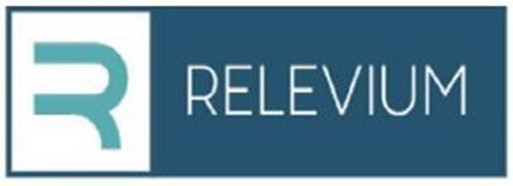
Wir freuen uns auf Sie!
Um dies zu erreichen, werden wir bei RELEVIUM Patienten mit digitalen Tools ausstatten, die die Kommunikation zwischen Patient und Arzt erleichtern und es ihnen ermöglichen, ihre Krankheit selbst zu bewältigen. RELEVIUM wird (i) eine Smartwatch mit mehreren Sensoren und ein innovatives Remote-Ultraschallpatch, (ii) KI-Algorithmen zur kontinuierlichen Fernüberwachung von Schmerzen und Sarkopenie sowie zur Entscheidungsunterstützung und (iii) Anwendungen für Patienten und Pflegekräfte verwenden. Kombiniert werden diese Tools die Evidenz für das Fortschreiten der Symptome liefern und Ärzte in die Lage versetzen, personalisierte Behandlungspläne anzuwenden.
Das Projekt wird zunächst eine Machbarkeits- und Datenerhebungsstudie durchführen (RELEVIUM-FDC). Ziel der Studie ist es, die Adhärenz und Compliance der Patienten zu optimieren und Daten für die Entwicklung der Intervention zu sammeln. Eine randomisierte klinische Studie ab dem dritten Jahr mit fünf Zentren (RELEVIUM-RCT) wird die Wirksamkeit der vorgeschlagenen personalisierten Behandlungspläne für Patienten mit fortgeschrittenem Bauchspeicheldrüsenkrebs in Bezug auf ihre Lebensqualität bewerten. Mehrere sekundäre Endpunkte werden untersucht, wie die Kostenwirksamkeit der Intervention, ihr Potenzial zur Erhöhung der gesundheitlichen Chancengleichheit und zur Linderung der Stressbelastung für die Familien der Patienten in verschiedenen europäischen Ländern.
Die Studienergebnisse werden zu Empfehlungen für die Integration von Fernbehandlung und Verbesserung der QoL-Ergebnisse in der Palliativversorgung bei fortgeschrittenem oder metastasiertem Bauchspeicheldrüsenkrebs führen.
Have a look at the main hypothesis.
The main hypothesis of RELEVIUM is that quality of life (QoL) of advanced pancreatic cancer patients can be significantly improved by reducing pain and cachexia through highly personalised nutrition, physical activity, and pain management strategies, in addition to chemotherapy treatment. To achieve this, RELEVIUM will empower patients with digital tools that facilitate patient-doctor communication and enable them to self-manage their disease. RELEVIUM will use (i) a multi-sensor smartwatch and an innovative remote ultrasound patch, (ii) AI algorithms for continuous remote monitoring of pain and sarcopenia, as well as for decision support, and (iii) patient and caregiver applications. Combined, these tools will provide a stream of evidence on symptom progression and will enable physicians to apply personalised care plans.
The project will initially conduct a feasibility and data collection study (RELEVIUM-FDC). The study aims at optimizing patient adherence and compliance, and at collecting data for the development of the intervention. A five-centre randomized clinical trial (RELEVIUM-RCT) will then evaluate the efficacy of the proposed personalised care plans for advanced pancreatic cancer patients in terms of their QoL. Several secondary outcomes will be investigated, such as the cost-effectiveness of the intervention, its potential in increasing health equity and in relieving the stress burden on the patient families. The study outcomes will result in recommendations for integrating remote monitoring and improving QoL outcomes in palliative care for advanced pancreatic cancer.

Projekt Coordinator
- Mainz University Medical Center (Lead Coordinator)
- Department of Internal Medicine I and
- Medical Psychology and Medical Sociology
More partners
- Johannes Gutenberg University Mainz (Sports Medicine Department)
- Ethniko Kentro Erevnas Kai Technologikis Anaptyxis, Greece
- Charokopeio Panepistimio, Greece
- EXUS Software, Greece
- Fraunhofer Society e.V., Germany
- Ainigma Technologies BV, Belgium
- MCS Data Labs GmbH, Germany
- Futuro Perfecto Innovacion SL, Spain
- European Cancer Patient Coalition, Belgium
- Institut Curie, France
- The Health Cooperation- RAMBAM, Israel
- Sihtasutus Põhja-Eesti Regionaalhaigla, Estonia
- Institut Jules Bordet ASBL, Belgium
- Diadikasia Business Consulting SA, Greece
- Pulsify Medical BV, Belgium
- Center for Social Innovation Ltd, Cyprus
- Rosenbaum Consulting Ltd., Bulgaria
